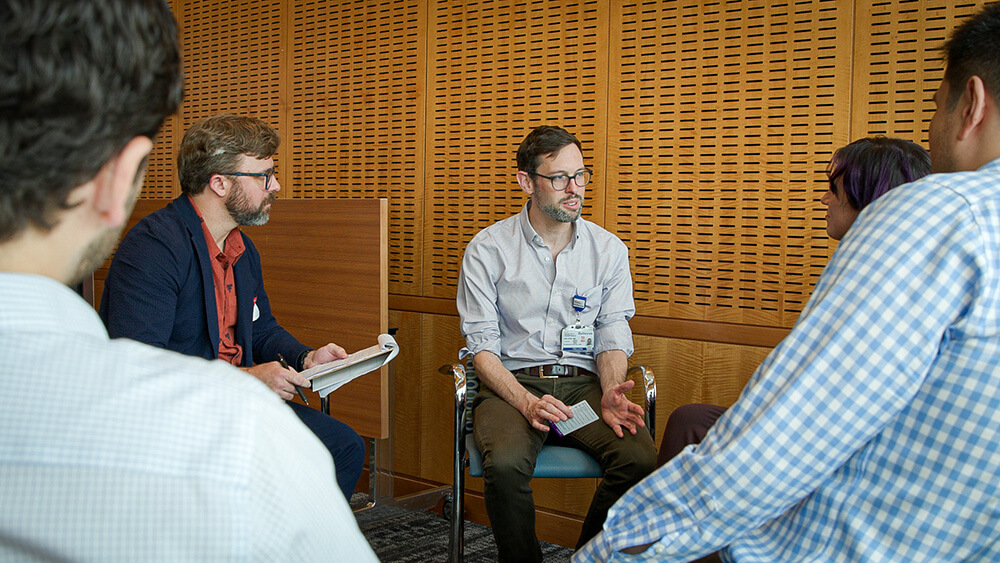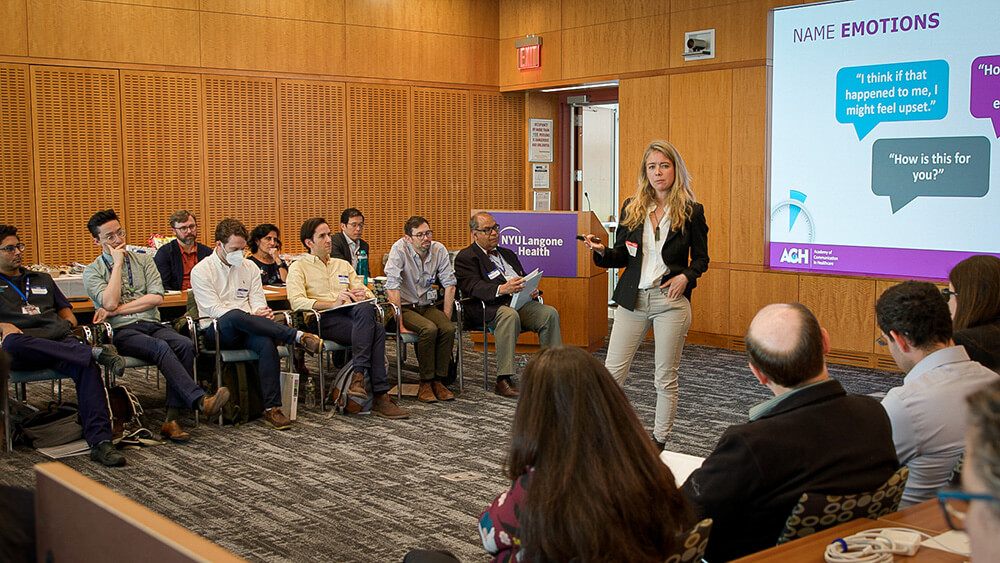
The First 5 Minutes® program “stemmed from the need to be innovative and create new opportunities for our members on how to provide good patient care,” said CHEST’s Jody Egel. “And how to affect patients through our doctors — because we’re not a direct line to the end user.”
In the U.S., it’s not uncommon to find a higher prevalence of lung disease among marginalized communities, particularly in areas where a significant portion of the population lives below the poverty line and/or does not have health insurance. In an effort to determine how clinicians can better serve these communities and what roadblocks may stand in the way, in 2020 the American College of Chest Physicians (CHEST) launched the Listening Tour, interviewing clinicians, patients, and their caregivers in cities across the country.
The first iteration of the tour, which kicked off virtually in the fall of 2020, stopped in five U.S. cities that were chosen specifically because they had statistically lower participation rates in those underserved communities when it comes to seeking treatment and accessing health care. One of the broader goals of the tour, explained Melissa Bustamante, senior program specialist, patient education for CHEST, was to connect with these populations, talking to them directly to gain a deeper understanding of what stops patients from seeking medical treatment. Two major themes emerged — patients reported a lack of empathy from and general distrust of clinicians as well as the health-care system.
These findings form the basis of CHEST’s new educational program, the First 5 Minutes®, in which clinicians focus on how to establish trust with patients from the get-go, within the limited time span they have during appointments, which often are only 15 minutes in length. But the CHEST team felt the subject matter warranted more than just a one-off conference session — so they launched a traveling series of in-person workshops instead.
‘I Hear You’
Knowing that many clinicians have a limited window to see patients, CHEST designed the First 5 Minutes® curriculum to coach them to ensure “that they’re actually listening, versus reacting” during those first few critical minutes of an appointment, Bustamante said. “There’s a big opportunity for doctors to respond empathetically and build [trust and say], ‘I care about you as a whole, you’re not just a 15-minute appointment, and if I can’t address all of your issues here, we can guide you to specialists or other individuals who may be able to help you.’”
In practice, that curriculum involves small-group discussions, role-playing exercises, and other interactive exercises designed to help clinicians establish trust and rapport with their patients. For example, one of the topics covered is negotiating the agenda — when the patient has a long list of concerns and issues that a provider cannot realistically address during one appointment. Acknowledgement, Bustamante said, is key here, which can be achieved by saying, “’I hear you. Today, we’re doing to address these [issues] and we’ll address the others over time.’”
The First 5 Minutes® initiative is an example of how CHEST is expanding its experiential educational offerings beyond its annual meeting and other traditional formats. So far, CHEST has hosted two day-long workshops, at the University of Texas at San Antonio and at New York University, and more are in the works. The First 5 Minutes® is also available as an e-learning module, which includes a virtual reality experience, if users have a headset. Although all formats follow the same curriculum, the in-person workshop has the advantage of interaction, enabling participants to practice with — and get immediate feedback from — other providers and experts.
So far, the response from participants has been positive — “it was really profound, immediately,” CHEST’s Jonathan Detrich said. Participants have reported back, saying that the curriculum “was a breath of fresh air” in that it helped hit a reset button in their day-to-day work. “At first, I thought, ‘what can they tell me about how to do a job which I’ve been doing effectively for many years?,’” said Diego Maselli Caceres, MD, FCCP, a participant in the First 5 Minutes® program. “But you can always learn something else, and having a structure … in the critical first five minutes can only strengthen the relationships we have with our patients.
In the end, the patients get a better experience and [the providers] get better patient outcomes.”
“We know everyone can’t take a year-long program to be pros at this,” Bustamante said, adding that her team zeroed in on making the curriculum as “bite-sized” and applicable to clinicians’ daily work lives as possible. In turn, that approach has another benefit — helping clinicians save time, which can go a long way in avoiding burnout. That’s “because it helps shift their focus from hitting a number of patients during the day,” said Jonathan Detrich, CHEST’s director, PMO, “to being a little more present in the room with them.”

By hosting one-day workshops at higher education institutions around the U.S., CHEST hopes participating clinicians will train other providers on the First 5 Minutes® program.
A Reset Button
Part of the reason why CHEST chose a standalone workshop format for the First 5 Minutes® is to expand the reach of the program as well as to partner with educational institutions to serve as host venues. “We’re trying to reach doctors through our CHEST ambassadors, our board members, and people who are champions of the cause,” said Jody Egel, director, meetings and events for CHEST. “And really take it direct into their facilities.” The idea is that physicians who complete the First 5 Minutes® program will take their learnings back to their hospitals and institutions and in turn train other clinicians.
Looking ahead, CHEST plans to expand the First 5 Minutes® workshops to more cities and to partner with more educational institutions, potentially making the program a required rubric in its clinical training curriculum. “We don’t want this to be a one-time thing,” CHEST’s Melissa Bustamante said. “It’s truly something [clinicians of all levels and specialties] need to continue to practice.”
Jennifer N. Dienst is senior editor at Convene.
